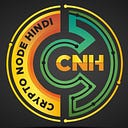Atlas Network (Incentvised) Testnet
Powered by NodeOPS
Introduction to Atlas Network:
Atlas Network is the first decentralized marketplace for seamless node deployment, unifying compute providers across protocols. It tackles key challenges in creating secure, decentralized, and reliable node networks while integrating platforms like EigenLayer, Babylon, and more. Supporting diverse verticals like Gaming, AI, and DePIN, Atlas Network simplifies node management, saving time, resources, and costs for protocols.
Providers:
Overview: Providers form the core of the Atlas Network and are responsible for contributing CPU resources to a shared pool. This section provides all the information required for providers, including technical and staking requirements, as well as a step-by-step guide on onboarding as a provider.
- Fill out the form: Providers AVS Operator Interest Form.
- Once you become an AVS operator, fill out the : EigenLayer AVS Operator Interest Form.
NOTE: Before proceeding with this quest, please ensure that you are whitelisted as an operator on the Atlas AVS
To run the node, the following items will be required:
- Create an account: https://testnet.atlasnetwork.xyz/refer/SgKCvLr
- Sepolia ARB faucet: https://www.alchemy.com/faucets/arbitrum-sepolia
- You will need a VPS, as per the requirements listed below:”
Purchase a VPS from Contabo using my affiliate link: https://linktr.ee/rajeshCNH
Requirements
The minimum requirements for a machine is:
- 2 vCPUs
- 4 GB Memory
- ≥80GB NVMe Storage
- ≥1Gbps unlimited network bandwidth
- 99% Uptime
- Debian >=12 / Ubuntu >=22.04 with Linux kernel >6.1
Provider Capacity
In Atlas Network, the capacity that every provider adds to the pool is measured in a unit called a Compute Unit (CU). One CU is a machine with one CPU, 2GB RAM, and 30 GB storage.
1 CU = 1 CPU | 2GB RAM | 30 GB Storage
Every machine a provider adds gets broken down into the number of CUs; the total of all the minimum CUs is the provider capacity.
Example: One provider brings three machines to the pool.
Machine1: 1 CPU | 4 GB RAM | 100 GB Storage,Machine2: 2 CPU | 4 GB RAM | 200 GB Storage ,Machine3: 4 CPU | 8 GB RAM | 500 GB Storage
CU of Machine1: min(1 | 2 | 3.3) = 1 CU of Machine2: min(2 | 2 | 6.6) = 2 CU of Machine3: min(4 | 4 | 16.6) = 4
The provider capacity = 1+2+4 = 7
Here is another example. Consider a machine with this spec. 4 CPU | 7.57 GB RAM | 150.16 GB Storage
CU: min (4 | 3 | 5) = 3
Staking
In Atlas Network, every provider must stake 2000 $NODE for provider onboarding. For every CU the provider brings to the pool, an additional stake of 200 $NODE for each machine.
In the above example, the provider stakes 2000 $NODE for provider onboarding and stakes 200, 400, & 800 $NODE for each machine.
NOTE: 🐦✨ Early Bird Offer is now live! No need to stake $2,000 for the Node Provider. 🚀 Don’t miss out — act fast!
Note: Maximum 5 machines can be added per provider
Provider Registration:
- Signup from here: https://testnet.atlasnetwork.xyz/refer/SgKCvLr
- Go to the Provider dashboard and connect your wallet.
2. Stake the $NODE tokens to start the onboarding process. (For early bird users you have to pay gas fees only)
NOTE: 🐦✨ Early Bird Offer is now live! No need to stake $2,000 for the Node Provider. 🚀 Don’t miss out — act fast!
3. Continue to create your profile to complete the registration process.
Machine Registration:
NOTE: To add a machine, make sure you are the provider.
- Start adding your machines (compute infrastructure) using “Add machine.”
- To add a machine, a call to our MachineRegistry contract gets triggered and completes the machine registry process.
- Copy the machine setup command and run it on your VPS/WSL as root user.
4. Your machine will be visible under “All” in the “AWAITING-STAKE” state. Click on “Stake” to start the machine staking process. The machine will change to “CONFIGURING.”
5. Wait for the machine to turn to “ACTIVE.”
6. Click on the active machine to pull up its details.
You can add up to 5 machines. If you have multiple VPS instances, you can run it on your VPS.
FAQs
1. Question: Are there any docs for the users?
You can find our documentation here.
2. Question: Why must I stake to become a Provider?
Staking is an economic security measure that ensures only earnest compute providers can contribute to the Atlas Network. It also ensures providers act in the best interest of the Atlas Network by adding reliability and efficiency. During the testnet phase, we will provide the associated testnet $NODE to stake as part of the early bird campaign. All you would need is $ETH on Arbitrum Sepolia as gas fees.
3. Question: Are there any prerequisite to participate in Atlas Network Quests?
Non-custodial EVM Wallet & testnet ETH on Arbitrum Sepolia are required to participate in our quests. Request on any existing public faucets like this.
4. Question: What will I get with $NODE staking?
You can earn more NPs by staking $NODE on Atlas Network with the potential of future airdrops for active participants.
❤️Thank You for Reading!
I appreciate you taking the time to read this article. If you found it helpful, give it a clap and share it with others who might benefit from it.
For more insightful content on Crypto node, don’t forget to follow me on Medium and connect with me on my social media channels:
- ➡️Telegram: https://t.me/cryptonodehindi
- ➡️Youtube: https://www.youtube.com/@CryptonodeHindi
